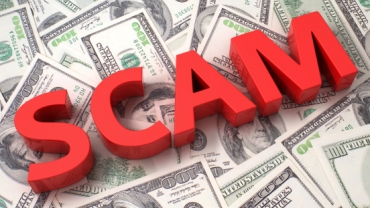It is often very difficult to tell the difference between an offer that is dubious and an offer that is a scam. This may not sound like an important differentiation, if you are not happy or feel you have bene let down, you’ll be angry regardless of the terminology used, but depending on whether it is a scam or a rip-off, you may have rights. For instance, if you have been misled by the offer, there are rights which the provider is not supposed to breach, and this means you may be entitled to compensation or the provider could face punishment.
For a fraud to have been committed, at least with respect to being classed as an offence under the Fraud Act, there must be intent to perpetrate a fraud or some intent to steal from the victim. As an example, if you paid money for a service that you don’t receive because it didn’t exist because the website is a fake website, this can be classed as a scam and will in all likelihood be classed as a fraudulent activity.
Has a Breach of Contract taken Place?
In contrast though, if the provider isn’t looking to steal you from but they can be seen as being grossly negligent or misleading the buyer, it may be that they will be in breach of the contract between buyer and seller. This is unlikely to be classed as a scam or as fraudulent activity but it will definitely be listed as questionable business practice.
There are three main strands of the Consumer Rights Acts to be aware and these state that sold goods must be:
- As described
- Fit for purpose
- Of a satisfactory quality
If the goods you have bought do not meet this criteria, there is a strong chance that the seller will be deemed to breach the Consumer Rights Act.
It is an offence, found in the Consumer Protection from Unfair Trading Regulations, if a company deliberately misleads the customer by providing false information or by omitting relevant and vital information. If you believe that a company has acted in this manner, you can raise a complaint of “mis-selling” against them. Regulations which came into being on the 1st of October in 2014 allows for a consumer to seek financial redress if a trader or company has misled or pressured the buyer into concluding a deal.
It is often down to the Consumer to show where they have been misled
The consumer is required to show that aggressive practice or a misleading action by the company has played a role in the customer entering the contract. This sort of action is commonly associated with certain industries with double glazing firms being major offenders. There is no denying that double glazing sales employees have developed a bad reputation with respect to high pressure tactics in making sales to clients.
With respect to firms advertising a sale, there are three main aspects to look out for:
- The original price must be included alongside the sale price
- An item must have been on sale at the higher price for a minimum of 28 consecutive days before being reduced in price
- The item must not be on sale at the reduced price for a longer period of time than it was on sale at the higher price
These rules and regulations are in place to help consumers and hopefully minimise the likelihood of a trader or company undertaking these actions. However, while there is an increasing number of regulations being introduced to protect consumers, there are many more ways in which consumers can find themselves at risk.
There has been a marked rise in the provision and sale of counterfeit goods, and this covers a wide range of products. While many people naturally associate counterfeit goods with clothing or electronic products, recent developments have seen the alcohol and tobacco industry impacted on by counterfeit goods. These are products that people still want to buy but at a lower price, and this has created an opportunity for fraudsters to step in.
Worryingly, there is a level of danger associated with these fraudulent products, and people may be placing their health at considerable risk if they consume counterfeit alcohol or smoke counterfeit cigarettes or tobacco products. This is why being aware of counterfeit products is vital and people can play a role in keeping other people safe if they report these crimes.
Andrew Reilly is a freelance writer with a focus on news stories and consumer interest articles. He has been writing professionally for 9 years but has been writing for as long as he can care to remember. When Andrew isn’t sat behind a laptop or researching a story, he will be found watching a gig or a game of football.

